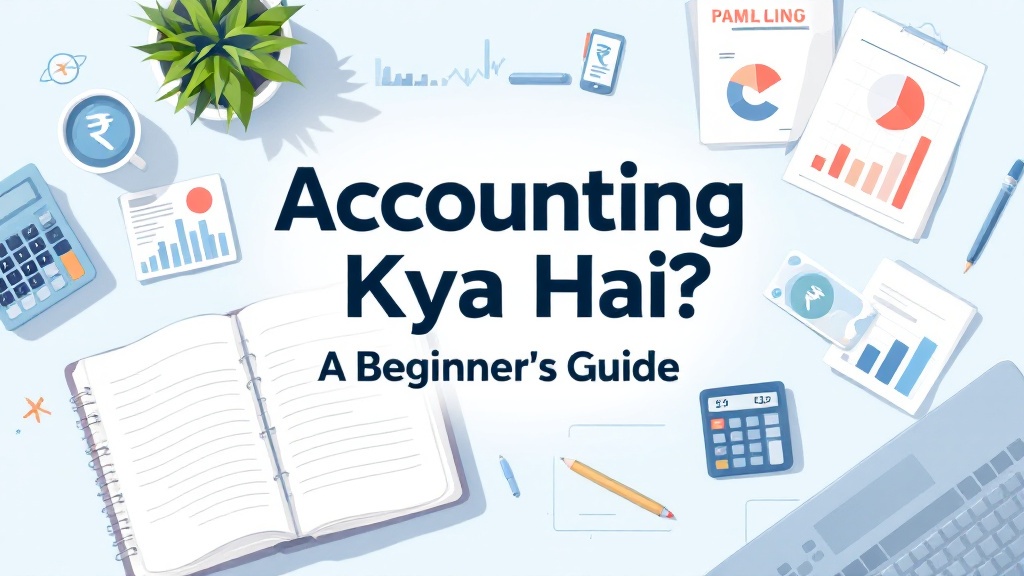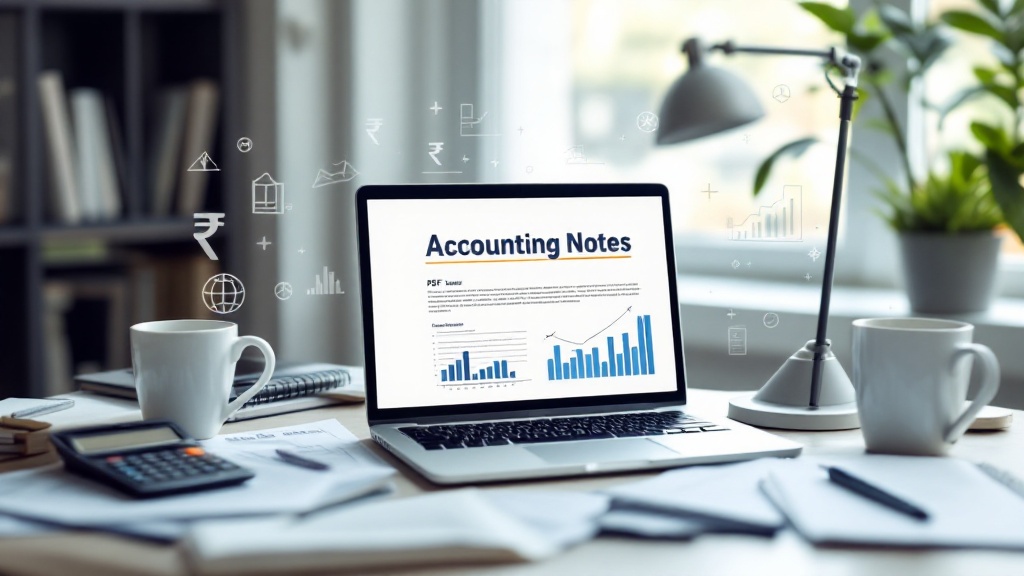Accounting for Beginners: A Simple Guide to Mastering the Basics
Table of Contents
Most Read
[fusion_dropcap class="fusion-content-tb-dropcap"]W[/fusion_dropcap]hether you’re a small business owner, freelancer, student, or simply curious about how money moves within a business, understanding accounting for beginners is a valuable skill. While the word accounting may sound intimidating at first, the truth is—it’s just a way of tracking where your money is coming from and where it’s going.
In this beginner-friendly guide, we’ll walk you through the basics of accounting, explain common terms, and offer simple tips to help you build a strong financial foundation—whether for personal use or business growth.
What Is Accounting?
Accounting is the process of recording, summarizing, analyzing, and reporting financial transactions. It helps individuals and organizations understand their financial health, make informed decisions, and stay compliant with laws and regulations.
Think of accounting as the language of business. Just as you need words to tell a story, you need numbers to tell the story of your finances.
Why Is Accounting Important?
No matter how small your business is—or even if you’re just managing personal expenses—accounting plays a key role in:
- 📊 Tracking income and expenses
- ✅ Making strategic business decisions
- 🧾 Preparing for tax season
- 💰 Improving profitability
- 📉 Avoiding financial mistakes
Good accounting is like a GPS for your finances. Without it, you’re driving blind.
Key Accounting Terms You Should Know
Here’s a quick glossary of common accounting terms that every beginner should get familiar with:
- Assets: What your business owns (e.g., cash, inventory, equipment)
- Liabilities: What your business owes (e.g., loans, unpaid bills)
- Equity: The owner’s share in the business after debts are paid
- Revenue: The money you earn from sales or services
- Expenses: Costs involved in running your business
- Profit: What’s left after subtracting expenses from revenue
- Ledger: A detailed record of financial transactions
- Balance Sheet: A snapshot of your business’s financial position at a specific point in time
- Income Statement (P&L): A report showing your revenue, expenses, and profit over a period
- Cash Flow Statement: Tracks how money moves in and out of your business
The Basics of Bookkeeping
Before diving into complex accounting systems, it’s essential to understand bookkeeping, which is the foundation of all accounting.
Bookkeeping is the daily recording of financial transactions. This includes:
- Issuing invoices
- Recording purchases
- Reconciling bank statements
- Paying bills
- Logging expenses
You can maintain your books using Excel spreadsheets, accounting software like Tally, QuickBooks, or Zoho Books, or hire a professional bookkeeper.
Single-Entry vs. Double-Entry Bookkeeping
- Single-entry bookkeeping records each transaction once. It’s simple but suited only for very small operations.
- Double-entry bookkeeping records two entries for every transaction—one debit and one credit—ensuring the books always balance. It’s the standard system for businesses.
Setting Up Your Accounting System
Starting from scratch? Here’s how you can set up your accounting system step-by-step:
1. Choose Your Accounting Method
There are two main methods:
- Cash basis: You record income when you receive it and expenses when you pay them.
- Accrual basis: You record income and expenses when they are earned or incurred, not when the money changes hands.
For beginners and small businesses, cash basis is easier and more straightforward.
2. Open a Business Bank Account
Keep your personal and business finances separate. This makes bookkeeping easier and avoids confusion during tax filing.
3. Select Accounting Software
Using digital tools simplifies your accounting process. Popular options include:
- QuickBooks
- Zoho Books
- Tally
- Wave (free for small businesses)
Look for features like invoice creation, GST support, bank integration, and financial reporting.
4. Create a Chart of Accounts
A Chart of Accounts is a list of all the financial accounts in your system—assets, liabilities, income, and expenses. Organizing your accounts properly helps track each type of transaction with clarity.
Financial Statements You Should Know
Once your books are in order, you’ll be able to generate financial reports that help you analyze your business health.
1. Balance Sheet
Shows what your business owns (assets), owes (liabilities), and the owner’s equity. It’s like a snapshot of your finances on a particular date.
2. Income Statement (Profit & Loss Statement)
Displays revenues, expenses, and profits over a specific time. It answers: Are you making money?
3. Cash Flow Statement
Shows how cash enters and exits your business. This is key for understanding liquidity and making sure you don’t run out of cash.
Common Accounting Mistakes to Avoid
Here are some beginner pitfalls—and how to avoid them:
- Mixing personal and business expenses: Always keep them separate.
- Ignoring small transactions: Even minor expenses can add up.
- Not backing up records: Keep digital and cloud backups of your financial data.
- DIY taxes without guidance: Always consult a professional if unsure.
- Failing to reconcile accounts: Regularly match your books with bank statements.
Helpful Accounting Tips for Beginners
Here are a few practical tips to make your accounting journey smoother:
✅ Stay consistent: Set aside time each week to update your records.
✅ Understand tax basics: Know the difference between GST, TDS, and income tax obligations.
✅ Save all receipts and bills: They’re your proof for audits and tax claims.
✅ Review reports monthly: Don’t wait for year-end to check if you’re profitable.
✅ Seek expert help: Hire a CA or accounting firm like FinTax24 if things get overwhelming.
How FinTax24 Can Help
At FinTax24, we specialize in helping individuals and businesses streamline their accounting and compliance needs. From GST registration to income tax filing, we provide end-to-end solutions that let you focus on growing your business while we handle the numbers.
With our expert team and tech-driven approach, you get:
- ✅ Accurate bookkeeping
- ✅ Timely financial reports
- ✅ Strategic tax planning
- ✅ Affordable packages tailored for startups and SMEs
Visit Accounting24.in to learn more or book a consultation today!
Final Thoughts
Learning accounting as a beginner doesn’t have to be overwhelming. With the right mindset, tools, and support, you can build a strong foundation and make smarter financial decisions. Remember—accounting is not just about numbers; it’s about understanding the story your business tells through those numbers.
Whether you’re handling it solo or with a team like FinTax24, mastering the basics of accounting puts you in control of your financial future.
Liked this article? Share it with someone who’s just getting started! And don’t forget to follow Accounting24 on Instagram, LinkedIn, and Facebook for more accounting tips and updates.
Visit Our Website : Accounting24.in









